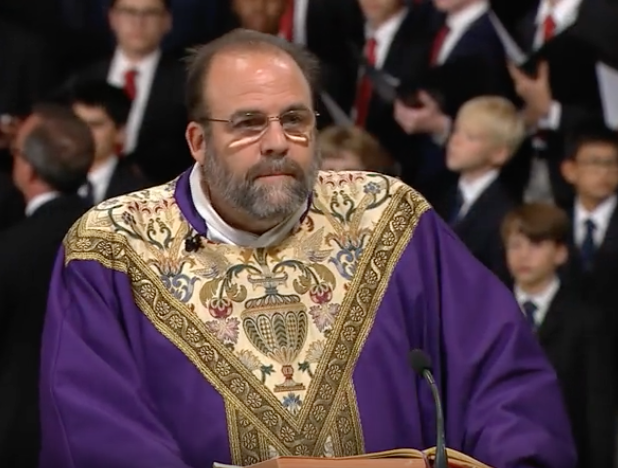The Better Era of ‘Baby, It’s Cold Outside’, by Robert W. Merry

Christ is Still Our Hope, Even in Crisis, by Dave McClow
December 19, 2018
Cardinal Burke: The Pope Must Investigate McCarrick Scandal
December 19, 2018
Credit: fotohunter/Shutterstock
By Robert W. Merry, American Conservative, December 17, 2018
In Whit Stillman’s splendid third film The Last Days of Disco, Alice turns distraught when her friends Charlotte and Holly head off late at night with their new boyfriends. “I thought we were here as a group,” she protests, perhaps feeling isolated after she was insulted earlier in the evening by a young man who a few days before had captured her virginity. After they leave, Alice complains to Des, the disco functionary, “All week Charlotte’s been talking about the tremendous importance of group social life, opposing all this ferocious pairing off.”
To which Des turns philosophical. “Well,” he says, “group social life has its place, but at a certain point other biological factors come into play. Our bodies weren’t really designed for group social life. A certain amount of pairing off was always part of the original plan.”
That exchange came to mind the other day when I read in The Wall Street Journal that radio stations across the country have been banning from their playlists Frank Loesser’s famous song “Baby, It’s Cold Outside,” an instant hit and perennial Christmas favorite since it captured an Academy Award as best original song in 1949’s Neptune’s Daughter. It seems that some of the #MeToo people think it evokes “date rape and coercion,” as the Journal puts it.
But does it? Nearly everyone knows the song. It’s cute and clever and definitely a period piece. Loessing wrote it as a little ditty for him and his wife to sing at parties—hardly evoking, at least at the time, anything sinister or troubling. It’s about a guy—in the 1940s, remember—who’s trying to seduce a woman after what appears to have been a lovely but sexually incomplete evening. She says she has to go home (to her parents) because it’s late and people will talk if she stays the night, and she must, after all, do what’s right. But wait, he says, it’s snowing and cold, and the night is forbidding while inside the fire is roaring. Besides, he thrills when she touches his hand, her hair looks swell and her eyes are like starlight.
The song doesn’t tell us how the little drama plays out. All we know is that the couple was navigating that delicate territory that Disco Des identified as “always part of the original plan.” He’s using cajolery, a bit of pleading, and plenty of flattery—pretty much all the tools that respectable men of the time employed in that endless negotiation between the sexes. She isn’t insulted by any of it, and clearly she wants to stay, but she’s held in check by the conventional morality of the day. As a female friend characterized to me her apparent struggle, “I want to but I don’t want to, or rather I want to but I don’t want to want to, and I have to always think about what other people will think. But I want to. So what should I do?”
Ah, that was the dilemma for women in those days. But she had one powerful weapon of her own as she struggled with that delicate question. The default position for women back then was “no.” This was established by society and enforced by cranky maiden aunts and other meddlesome moralists. In fact, our female protagonist in the song even notes that her own maiden aunt’s “mind is so vicious,” to which her would-be seducer replies, “Your lips look so delicious.”
Perhaps the #MeToo folks can’t appreciate “Baby, It’s Cold Outside” because they don’t appreciate the significance and value in that old default stance. Much has been written about the “hook-up culture” of men and women, and even boys and girls, these days. Camille Paglia recently lamented the diminution on college campuses of women’s standing in the gavotte of sex and men’s appreciation of that standing in previous times. Nearly gone now, she says, is “a man, behaving in a courtly, polite and respectful manner, [who] pursues a woman and gives her the time and the grace and the space to make a decision of consent or not…. Today, alas, too many young women feel they have to provide quick sex or they’ll lose social status. If a guy can’t get sex from them, he’ll get it from somebody else.”
Just seven years after Frank Loesser’s song got an Oscar, the pioneering ad writer Shirley Polykoff produced an advertising slogan that was considered provocative, even risqué, at the time. It was a television commercial for Clairol hair coloring. As an attractive woman walks with grace and style across the screen, a voiceover intones: “Does she…or doesn’t she? Only her hairdresser knows for sure.” Like the song, this is entirely a period piece, a relic of a different cultural era. Today, it doesn’t work at all. In fact, what a stupid question! Of course she does (well, we don’t know about her hair).
But in Polykoff’s day it was the woman’s question to answer, which surrounded her with intrigue and mystery. If men were interested, they had to find out largely through “courtly, polite and respectful” means, as Paglia puts it in lamenting the passing of such behavior.
Amy Wax, the University of Pennsylvania law professor and provocative social commentator, has written that the hook up culture has given rise, for women, to a surge of what she calls “sex without desire.” She asks: “What is the relevance of this supposed surge in undesired sex to the rise in allegations of sexual assault on campus?” She notes that Georgetown law professor Robin West, who also has written extensively on the subject, believes there’s a link. In this view, the hook up culture has created what Wax characterizes as “a rough, competitive marketplace in which women are impelled to rush headlong into superficial, short-lived physical intimacies as the condition for social popularity and the company of the opposite sex.” That may be a culture ready-made for regret and recrimination, though Wax is careful not to try to answer the question of whether there is a link between all this and the rise in allegations of sexual misconduct.
But “Baby, It’s Cold Outside” harkens back to that earlier time, as does Polykoff’s famous question. In the song, our young woman definitely holds the trump card and can make up her own mind. Of course, in doing so she has to contend with all kinds of social pressures that don’t exist today, and her decision couldn’t be separated, as such decisions are now, from matters of morality. But this particular negotiation is carried on in a context of sweetness and mutual regard. We don’t know the outcome, but we can hope. And we do know that, at the end of the line, there wasn’t likely to be any sex without desire, though the prospect of desire without sex remained a distinct possibility.
Robert W. Merry, longtime Washington journalist and publishing executive, is the author most recently of President McKinley: Architect of the American Century.
`https://www.theamericanconservative.com/articles/the-better-era-of-baby-its-cold-outside/




